The Secret's in the Pantry: The Power of Vinegar for a Garden
Don't overlook the simple magic of white vinegar for your garden. This versatile, natural tool is a game-changer for gardeners who want to keep their plants healthy and vibrant without harsh chemicals. It's a surprisingly effective solution for everything from fighting weeds to deterring pests, proving that a simple, natural approach can be the best one yet.
8/29/20255 min read
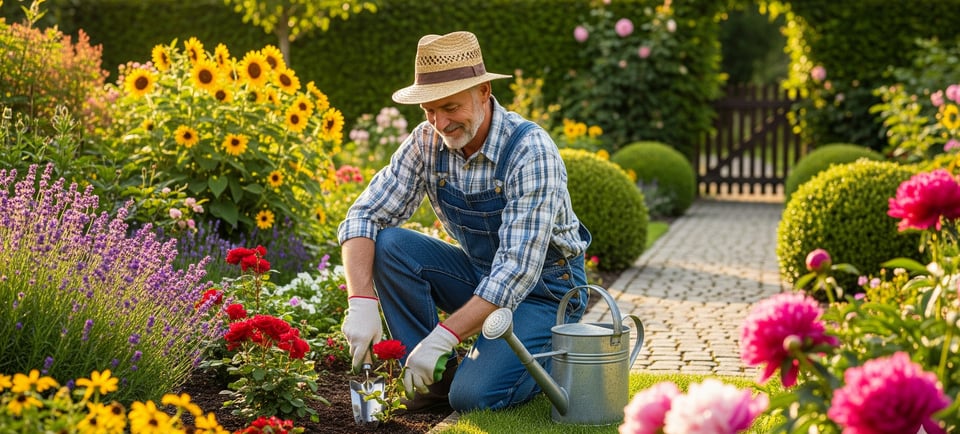

Hey there, fellow plant whisperers! You know that bottle of white vinegar sitting in your pantry, the one you use to clean your windows and maybe make a salad dressing? Well, what if I told you that simple, unassuming liquid is one of the most versatile and downright magical tools you could ever have for your garden? Honestly, it’s a game-changer, especially for those of us who just love to get our hands in the dirt but want to avoid using harsh chemicals.
For those of us who find peace and joy in our green spaces, whether it’s a sprawling backyard sanctuary or a simple balcony full of potted plants, keeping everything healthy and vibrant is always the goal. And let’s face it, sometimes it feels like a never-ending battle against the elements, from unwelcome critters to those pesky weeds that just seem to sprout up overnight. But before you reach for something from the hardware store, hear me out. A simple, natural solution might just be the best one yet.
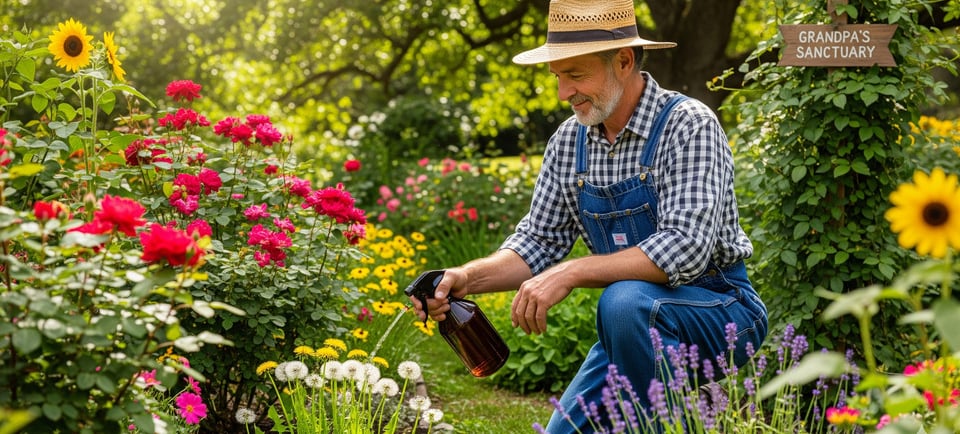

Say Goodbye to Weeds with a DIY Vinegar Weed Killer
This is probably the most famous use of vinegar in the garden, and for good reason! It works wonders on those stubborn weeds that pop up in your driveway cracks or between paving stones. Let me explain. The secret lies in acetic acid, the very thing that gives vinegar its signature sour smell. This acid is a natural herbicide that basically burns the top growth of plants. It’s a contact killer, meaning it only affects what it touches, which makes it perfect for targeting those rogue plants without harming your precious flowers or vegetable plants—as long as you’re careful!
Now, for your average household vinegar, the kind with about 5% acetic acid, you can mix up a potent homemade solution. A great recipe is to combine a gallon of white vinegar with a cup of salt and a tablespoon of dish soap. The salt helps dehydrate the weed, and the soap acts as a surfactant to help the mixture stick to the waxy leaf surface. Spray it directly on the weed on a sunny, warm day, and watch as it withers within hours. It’s incredibly satisfying!
But here’s the thing: because it’s a contact killer, it won't always take care of the roots of a perennial weed. For a more serious attack, some gardeners will use horticultural vinegar, which can be 20% acetic acid or higher. Be warned, though—this stuff is powerful and can cause skin burns and eye damage, so you’ve got to handle it with extreme care and wear proper protective gear. Stick to the household version for most jobs, and you’ll be just fine.
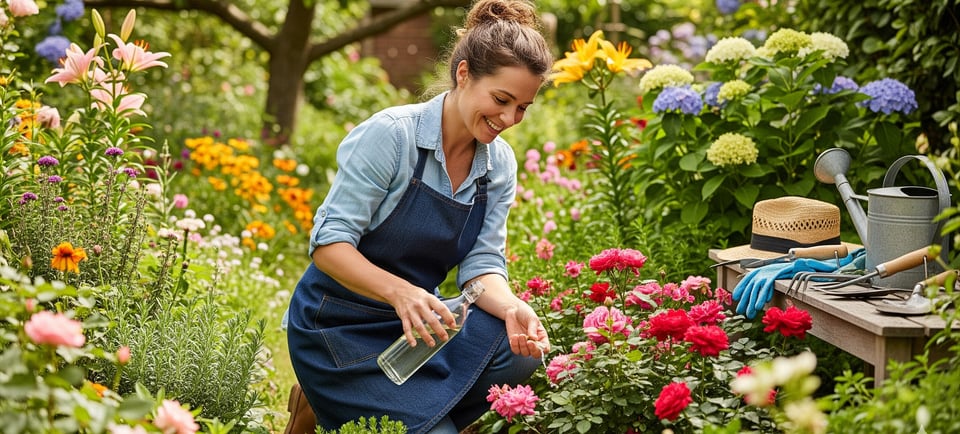

Keep Pests and Unwanted Critters at Bay
What's more frustrating than finding your beautiful blooms have been nibbled on by a furry friend? Or discovering a trail of ants marching into your home from the garden? This is where the strong smell of vinegar becomes your ally. Animals like deer, rabbits, dogs, and cats can’t stand the scent. Simply soak old rags or sponges in full-strength white vinegar and place them on stakes around the perimeter of your garden or near your most vulnerable plants. You’ll need to re-soak them after a heavy rain, but it’s a simple, non-toxic way to send a message.
And for those creepy crawlies? A diluted spray of water and vinegar can deter ants, slugs, and snails from making your garden their personal buffet. The strong scent disrupts their scent trails and sends them packing. You can even use a small container with apple cider vinegar to create a trap for pesky fruit flies.
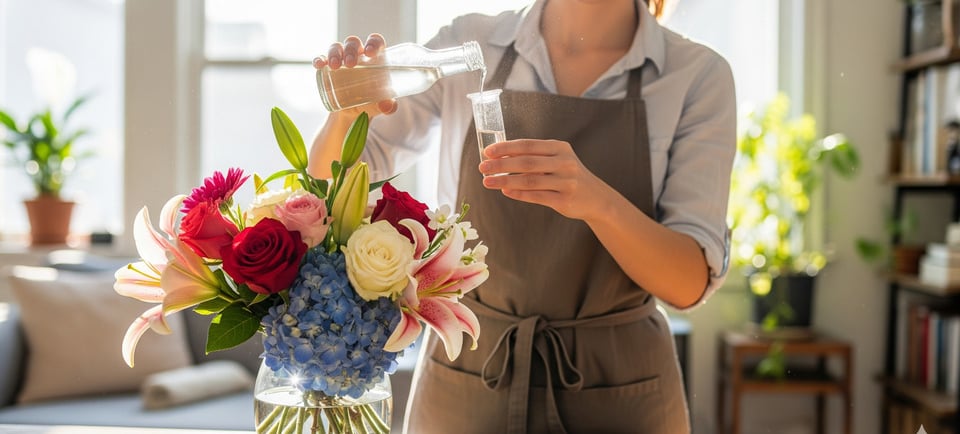

FAQs: The Power of Vinegar in the Garden
Q: Can I use vinegar to feed my plants?
A: This one is a bit of a mild contradiction. While vinegar is acidic and can help lower the pH of your soil, which is great for acid-loving plants like rhododendrons, azaleas, and gardenias, you have to be careful. Too much can make the soil too acidic and actually harm your plants and the beneficial microbes in the soil. A good rule of thumb is to add about a cup of white vinegar to a gallon of water when watering these specific plants.
Q: Will vinegar kill my grass?
A: Yes, it absolutely will. Because vinegar is a non-selective herbicide, it can kill any plant it touches, including your lawn. So, it's not a great option for widespread weed control in a lawn. Instead, use it for targeted spot treatments in areas where you don’t want any plant life, like on your driveway or gravel path.
Q: What’s the best way to clean my gardening tools with vinegar?
A: Oh, this is a great use! Just soak your dirty or rusty tools in a basin of undiluted white vinegar for a few hours or even overnight. It’s a fantastic cleaning solution that will loosen rust and grime. After soaking, just scrub them with an old toothbrush or a stiff brush, and they’ll be ready to go. You can also use it to clean birdbaths and terracotta pots, which tend to get that unsightly mineral buildup.
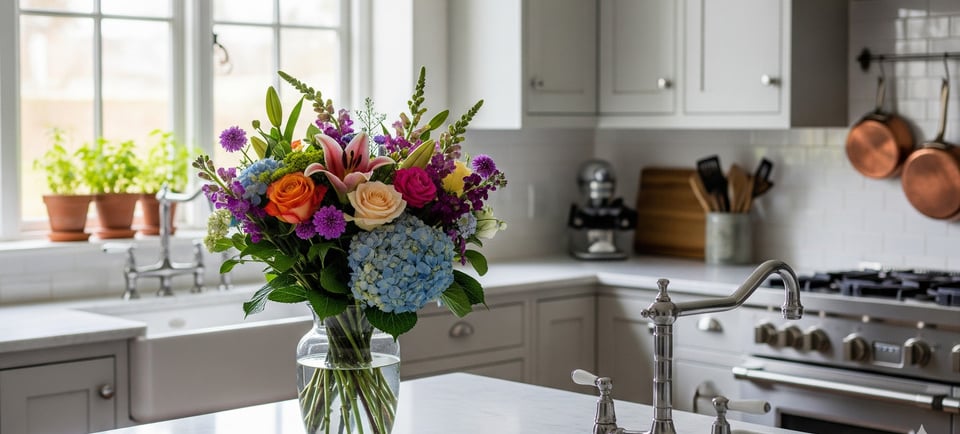

The Power of Vinegar: A Gardener’s Best-Kept Secret
Who doesn’t love a beautiful bouquet of fresh-cut flowers? The only downside is how quickly they seem to wilt. But don’t you fret! You can extend the life of your flowers by adding a simple kitchen remedy to their water. Just mix two tablespoons of white vinegar and one tablespoon of sugar into a quart of water. The vinegar helps to inhibit the growth of bacteria and keep the water fresh, while the sugar provides nourishment for the blooms. It's an easy and inexpensive way to enjoy your flowers for so much longer. It really makes all the difference.
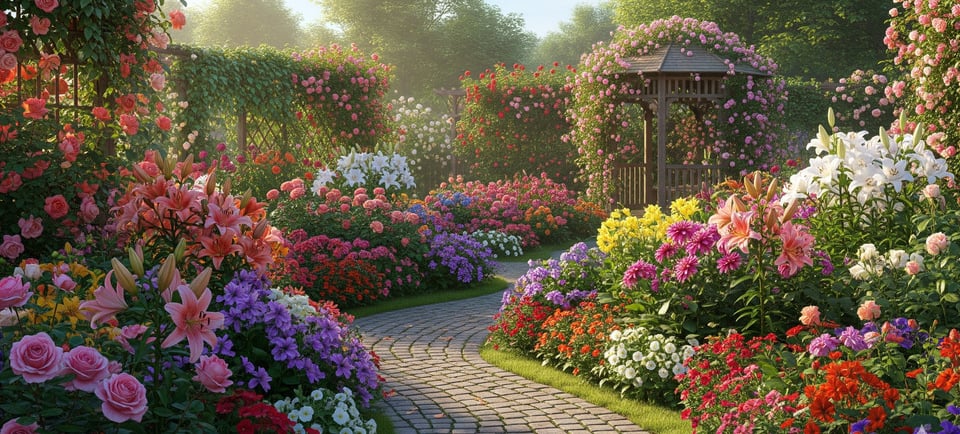

Putting It All Together for a Thriving Garden
So there you have it. The secret to a greener, more vibrant garden might just be hiding behind a cabinet door. From fighting weeds and fending off pests to cleaning your trusty tools and keeping your bouquets looking fresh, white vinegar and apple cider vinegar are a dynamic duo. They’re a reminder that sometimes the most effective solutions are the ones that are closest at hand and the most natural. So, go on, grab that bottle, head outside, and get ready to work some magic! Your garden (and your budget) will thank you for it.
